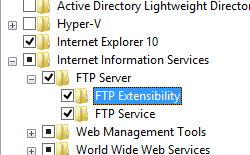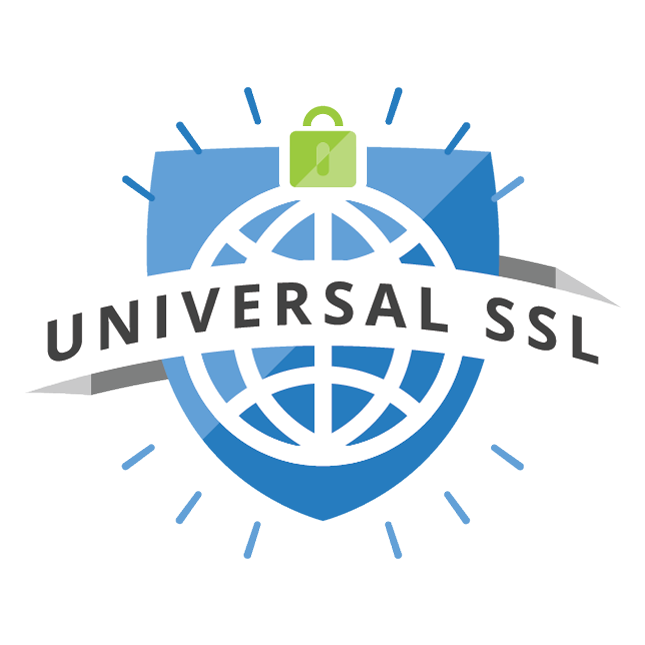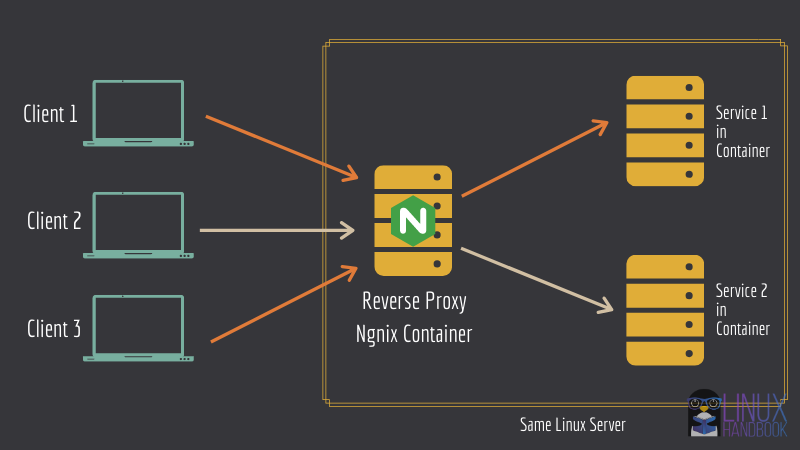
Host is a computer that provides services for other computers in a network. The host is usually a mainframe that communicates with other computers to provide services to network programs. It is also known by the Internet as a large-server. In both cases, the host refers to a powerful program or device that provides services for other programs and devices connected to the network.
Hosts are devices or computers that can communicate with other hosts in a network.
A host, also known simply as a server is a computer or device that connects to the internet and provides services for other devices. Its functions include sending and receiving applications and data. Hosts can be either physical or virtual devices in network architecture. There may be routers or switches in the network.
A network is a collection of devices that communicate with each other using an IP address. Each device has its own IP address and specific software. This allows hostnames or other names to be converted into IP addresses. Other devices and networks can also be connected to them. A network can contain a variety devices including routers, switches and routers.

Servers provide services for programs connected over the network
Servers are computer programs and systems that provide services to computers connected to a network. They are usually running a server operating program. This OS manages all server-related tasks and provides resources management. These systems have more features and processing power than regular computers, which are used for other purposes.
Servers allow computers to access information, such websites and files. They are vital components of any information-technology infrastructure. There are many kinds of servers, which vary in size, shape, and capability.
Distributed hosting is one form of distributed hosting
Distributed hosting is a type of web hosting where many users share a single server, rather than requiring each website owner to purchase their own physical server. Web hosts store their servers in data centres, while subscribers do not have to maintain their own server. Instead, users simply enter their URL into their web browser. The browser then converts it into an address and sends it off to the server. The web host hosts the servers and leases them to their users.
InterPlanetary File System (IPFS), a new form of distributed web hosting, now makes it possible to access a new generation. This network-based protocol allows users the ability to share content in a distributed environment, such as a shared library. IPFS utilizes content-addressing in order to uniquely identify each individual file in a global nospace.

Cloud hosting has become a more popular type of hosting.
Cloud hosting is a type or hosting service where you can pay as little or as many as you'd like. This type hosts websites with high traffic that require flexible pricing. It is a safer way to store data than on a traditional server, and it allows for advanced monitoring and web application firewalls. It is also cheaper than traditional hosting.
Cloud hosting works by dividing a physical server into many virtual machines. These virtual servers then link together to create one network for hosting websites. This hosting option is also known by the acronym cluster server hosting. While it's more expensive than shared hosting this type of hosting offers many benefits. Cloud hosting has many advantages. It is possible to anticipate traffic surges quickly and the virtual servers are always loaded with traffic. This allows for less overloading of the physical servers. Some websites require greater security than others. Cloud hosting gives you the flexibility to meet your needs.
FAQ
How much does it cost to build a website?
The answer to this question depends on what you want to accomplish with your website. Google Sites may not be required if you simply want to provide information about yourself or your company.
However, if you want to attract visitors to your website, you'll likely want to pay for something more robust.
The best option is to use a Content Management System, such as WordPress. These programs enable you to create a website in no time. This is because the sites are hosted and maintained by third-party companies. You don't have any risk of being hacked.
Squarespace offers a great way to build your website. There are a number of plans available, with prices ranging from $5 per Month to $100 Per Month depending on the features you wish to add to your website.
Can I make my website using HTML and CSS?
Yes, you can! You'll need to be familiar with web design concepts and programming languages such HTML (Hyper Text Markup Language), CSS, and CascadingStyle Sheets. These languages enable you to create websites that are accessible to anyone with an internet connection.
Do I Need Any Technical Skills To Design And Build My Site?
No. All you need to understand HTML and CSS. You can find tutorials online for HTML and CSS.
Is web development hard?
Web development can be difficult, but there are many online resources to help you get started.
It is as easy as finding the right tools for you and following them step by step.
YouTube and other platforms have many tutorials. There are also free online programs like Sublime Text and Notepad++.
You can also find many books in libraries and bookstores. Here are some of the most popular:
O'Reilly Media presents "Head first HTML & CSS".
O'Reilly Media's Head First PHP and MySQL 5th Ed.
Packt Publishing presents "PHP Programming: Absolute Beginners".
I hope this article was helpful.
How do I choose a Domain Name?
Choosing a good domain name is essential. Without a great domain name, people will not know where to find you when they search for your product.
Domain names should not be too long, difficult to remember, specific to your brand, or unique. It is ideal to have something that people can type into their browser.
Here are some ways to choose a domain name.
* Use keywords related to your niche.
* Do not use hyphens (-), numbers or symbols.
* Don't use.net or.org domains.
* Don't use words that have been used before.
* Try to avoid generic terms like "domain" or "website."
* Check that it is available.
WordPress is it a CMS?
Yes. It is called a Content Management System. Instead of using Dreamweaver or Frontpage, a CMS lets you manage your website content directly from your web browser.
WordPress is completely free! You don't have to pay for anything other than hosting, which your ISP usually provides.
WordPress was originally designed to be a blogging platform. However, WordPress now offers many options including eCommerce sites and forums, membership websites, portfolios and portfolios.
WordPress is very easy to set up and install. The installation file must be downloaded from the website and uploaded to your server. Simply visit the domain name from your web browser, and then log in to the new site.
After installing WordPress on your computer, you'll need a username and a password. Once you log in, you will be able to access your settings from a dashboard.
This is where you can add pages or posts, images and links to them. You may skip this step if you feel comfortable editing and creating content.
You can, however, hire a professional Web designer to handle the whole thing if your preference is to work with another person.
Statistics
- It's estimated that chatbots could reduce this by 30%. Gone are the days when chatbots were mere gimmicks – now, they're becoming ever more essential to customer-facing services. (websitebuilderexpert.com)
- The average website user will read about 20% of the text on any given page, so it's crucial to entice them with an appropriate vibe. (websitebuilderexpert.com)
- It enables you to sell your music directly on your website and keep 100% of the profits. (wix.com)
- Is your web design optimized for mobile? Over 50% of internet users browse websites using a mobile device. (wix.com)
- Did you know videos can boost organic search traffic to your website by 157%? (wix.com)
External Links
How To
What is website hosting?
Website hosting describes where visitors go when they visit a site. There are 2 types.
-
Shared hosting is the cheapest. Your website files reside on a server controlled by someone else. Customers who visit your website send their requests via the Internet over to that server. The request is sent to the server's owner who then passes it on to you.
-
Dedicated hosting – This is the most expensive option. Your website resides entirely on one server. Your traffic stays private as no other websites can share the same server.
Shared hosting is preferred by most businesses because it's cheaper than dedicated hosting. You can use shared hosting if the company owns the server to provide the resources required for your website.
There are pros and disadvantages to each option. Here are the main differences between them:
Shared Hosting Pros:
-
Lower Cost
-
Easy to Setup
-
Frequent updates
-
It can be found on many web hosting companies
Hosting shared can be as low as $10 per month. Keep in mind, however, that bandwidth is usually included in the price. Bandwidth is the data transfer speed that you have over the Internet. So even if you only upload photos to your blog, you may still pay extra money for high amounts of data transferred through your account.
You'll soon discover why you paid so much more for your previous host when you get started. Most shared hosts don't offer any customer support. Although they will help you set up your site occasionally, you are on your own once you have done that.
A provider with 24-hour telephone support is a good choice. They will assist you with any problems that may arise while you're sleeping.
Dedicated Hosting Cons:
-
More Expensive
-
Less common
-
Requires Special Skills
With dedicated hosting, everything you need for your website is at your fingertips. You don't need to worry about bandwidth usage or RAM (random access memory).
This means that you'll spend a bit more upfront. But once your online business starts, you'll realize you don't need any technical assistance. You'll become an expert at managing your servers.
Which Is Better for My Business?
The answer to this question depends on which type of website you wish to create. If you only want to sell products, then shared hosting might be the best choice. It is simple to set up and easy to maintain. And since you're sharing a server with many other sites, you'll likely receive frequent updates.
If you are looking to create a community around your brand, dedicated hosting is the best option. You can put your efforts into building your brand, and not worry about how to handle your traffic.
Bluehost.com is the best web host for both. They offer unlimited data transfers per month, 24/7 support and free domain registration.